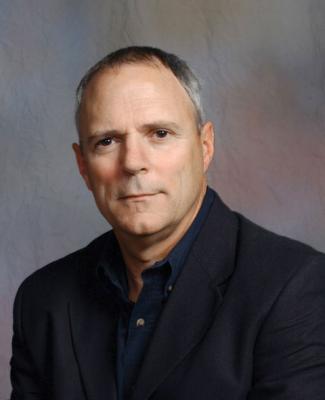The School of the Arts and Communication Gets a New Dean
John Laughton comes to TCNJ from the University of Massachusetts–Dartmouth, where he was most recently a professor and chair of the music department. He also served for seven years as the dean of the university’s College of Visual and Performing Arts. He has more than 30 years experience as a higher education educator and administrator, international arts consultant and performer, and trained mediator.


John Laughton comes to TCNJ from the University of Massachusetts–Dartmouth, where he was most recently a professor and chair of the music department. He also served for seven years as the dean of the university’s College of Visual and Performing Arts. He has more than 30 years experience as a higher education educator and administrator, international arts consultant and performer, and trained mediator.
As an arts administrator, Laughton has developed arts programs in the United States and Brazil, served as an adviser to the Institute for International Education, and has served as an officer on the boards of the Fulbright Association and the Fulbright Center in Washington, DC. He has directed and produced the Tidewater Music Festival, Chesapeake SummerArts, and California Summer Arts.
As a performer he has been broadcast nationally and internationally, and he has performed in major concert halls throughout the United States, Europe, Russia, Ukraine, Georgia, Brazil, and China. He is a two-time winner of a Fulbright Fellowship, a National Endowment for the Humanities Summer Seminar Grant, a National Endowment for the Humanities Summer Institute Grant, and twice the recipient of grants from the United States Information Agency for his concert/teaching tours of Brazil.
Laughton has served on the panel of judges for the Taneev International Chamber Music Festival in Russia and for The Fourth Georgian Competition of Musician-Performers in Tbilisi, Georgia. His publications include articles on the works of Darius Milhaud, commentary on the lives of contemporary Chinese artists, and articles on cultural democracy, censorship, and the arts
“I started my career as a professor at St. Mary’s College in Maryland, and helped build that program into a school very similar to TCNJ,” Laughton said when we talked with him last spring. “In fact, [St. Mary’s] was kind of a model that a lot of states looked at when developing liberal arts colleges as an alternative to large state universities.”
Laughton said it was too early to make any “broad generalizations” about changes or new initiatives that might be in store for his school. “My first priority will be to bring people together, find out where things stand, what people’s priorities are, and listen to what people have to say,” he explained. “Schools have their own culture that develops over the years,” Laughton continued. “The people who have been here have ideas that they believe in, and that they’ve used to transform and change programs. My goal is to find out more about these things,” he said.
Laughton did discuss one somewhat-recent change at the College—moving the Department of Communication Studies from the School of Culture and Society to its current home in the School of the Arts and Communication (that move took place in fall 2007).
“I think it’s a good match,” Laughton said about combining communications and the arts within one school. “Considering … the way the arts play into the 21st century model of making contact with one another, and with influencing and impacting ideas…the merging of those disciplines [i.e., art, music, and communications] was forward-looking on the part of the College.”
He pointed to today’s popular methods of communicating—for example, facebook, YouTube, and the iPhone—as examples of how written communication blends with sound and visual culture to create the information that people process. “To connect these…modes of communication, and to emphasize the strength of that way of communicating and…effecting people’s ideas and ways of looking at the world…[is] more relevant now then it has ever been,” he said.
Laughton said he is committed to keeping open the lines of communication with alumni of the school’s departments. “I’m eager to meet alumni, and understand what their dreams and aspirations are for the school, and help them anyway I can to promote their careers, because that likewise is beneficial to the school,” he said. “I hope alumni understand that any growth and development in the School of the Arts and Communication, and the College itself, adds value to their degrees. It’s a win-win situation.”
In addition to his teaching and scholarship, Laughton is an activist in arts, economic development, and violence prevention, serving on regional and national boards. He works with charitable organizations to raise money and awareness on how the arts can transform communities and educate across disciplines. In both California and Massachusetts, he organized campaigns in which artists and musicians helped young people living in areas of high gang activity to see “the importance of democracy, communal work, and cooperation,” he said.
“These are concepts that they probably see in their gang environment, but don’t ever see at work in other environments,” he said. The programs he administered showed the young people that these concepts can work in “nonviolent, safe environments.”
Posted on August 17, 2009

